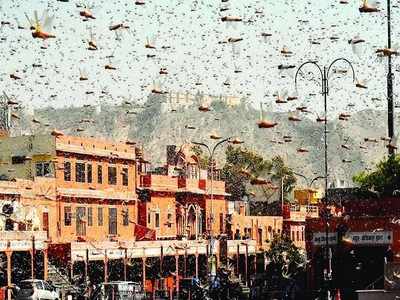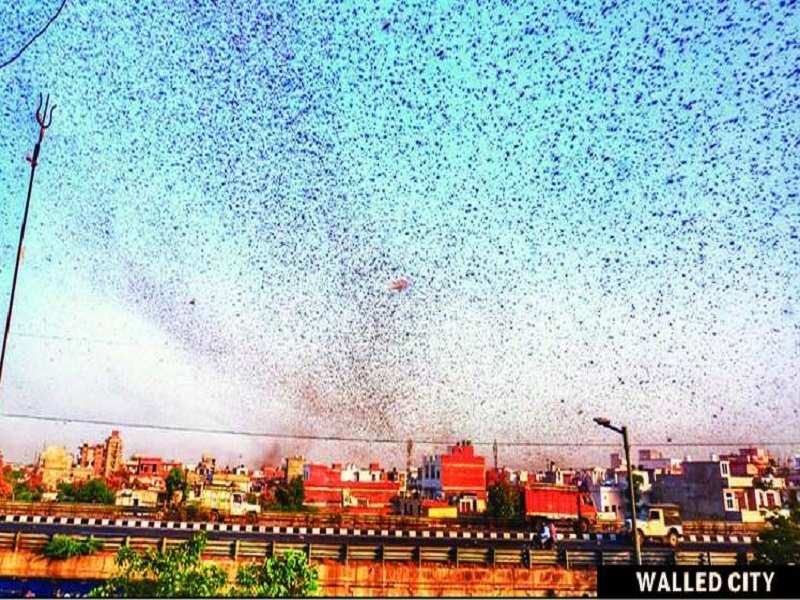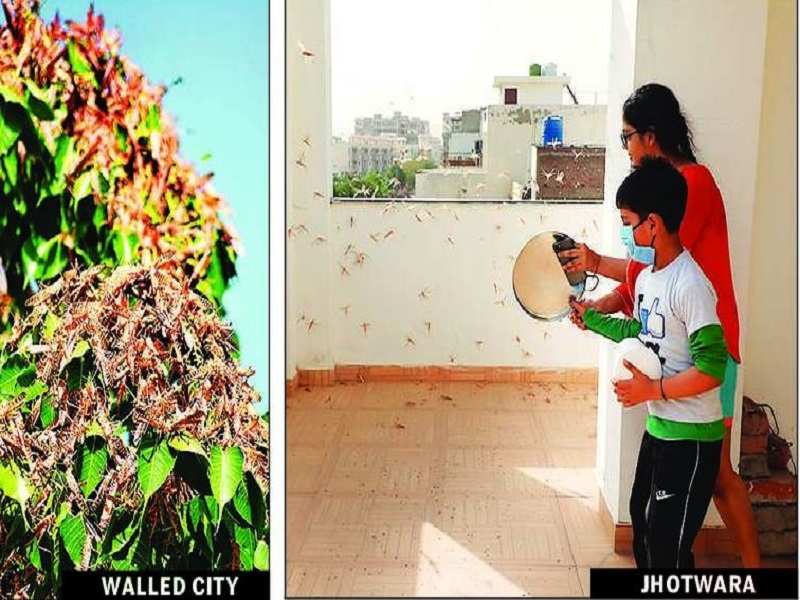
When flying pests raided Jaipur for a day
by Joychen JosephThe state had reported a locust invasion in May last year after a gap of 26 years and the attack continued unt...Read More
JAIPUR: Most of the localities of the city witnessed locust swarms on Monday morning. The pests, which entered the state from Pakistan on April 11, have been travelling towards the southern and eastern districts of the state in search of food. It has so far covered over 50,000 hectares, state agriculture department said.
The swarms were seen in several localities around 9.30am, much to the surprise of the residents, majority of whom were witnessing the insects flying in millions over their houses for the first time.

People clanged utensils and burst firecrackers to shoo away the pests. According to old timers, locusts in such numbers had made it way into Jaipur long back in 1986.

“Since it is non-agriculture season, vegetation is very less. The insects are short of food and are moving fast towards other areas to in search of food,” said agriculture commissioner Dr Om Prakash.
The state had reported a locust invasion in May last year after a gap of 26 years and the attack continued until February this year damaging rabi crops of in around 6,70,000 hectares in 12 western districts. But this time, the pests have covered over 15 districts and is carried away by hot westerly wind blowing from Pakistani. That is the reason locust has been seen in urban areas, say officials.
Currently around 30 countries in Africa, West Asia and Pakistan are under heavy locust attack. When there is strong winds from Pakistan, it carries the pests as well into India.
The department has been targeting the pests at night when they settle on trees by spraying pesticides and using tractors. They have not been fully successful as the trees are around 60 feet high and is located on agriculture fields. Pressing the services of fire fighters is also not effective in targeting trees on the agriculture fields due to inaccessibility. Thus drone operation is the only way out.
Prakash said, “We have been targeting the pests by spraying insecticides at night on trees when they settle. While thousands are killed, the remaining perched on high trees moves towards other areas, he said. He said currently the young ones are moving in search of newer pastures. According to reports, locust swarms have moved towards Dausa district passing Jaipur on Monday.
In Video:Watch: Swarm of locusts attacks Jaipur’s residential area